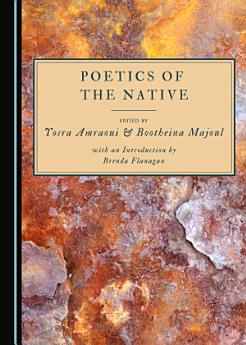Poetics of the Native
આ ઇ-પુસ્તક વિશે
Cultural, mediatized and historical representations of the native tend to fall within the boundaries of either a bottom-up or a top-down view that fits within a structuralist paradigm that rarely questions the individual, let alone the marginalized. However, there is a need to examine the systems within which indigenous narratives operate from a post-structuralist stance in order to re-read indigenous discourses and to celebrate the multiplicity of meanings inherent in them. The need for an intercultural pragmatic reading of native discourse therefore reveals itself to be of utmost relevance.
This volume discusses indigenous literary performances, native history and cultural representations of natives and aboriginal discourse from around the world. Topics pivot around historicizing the native, the role of testimony and primary sources, displacement and the denial of native legitimacy, and literary (mis)representations of natives, among other themes.
લેખક વિશે
Bootheina Majoul is an Associate Professor of English Literature at the High Institute of Languages of Tunis at the University of Carthage, Tunisia. She holds an MA in Cross Cultural Poetics from the University of Carthage, and a PhD in English Language and Literature/Letters from the University of Manouba, Tunisia. She has published two books and several academic articles and poetry collections, and edited two volumes, including her most recent publications, Terrorism in Literature: Examining a Global Phenomenon (2019) and On History and Memory in Arab Literature and Western Poetics (2020).




